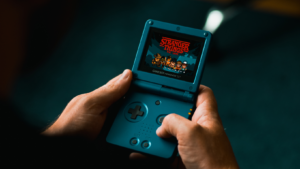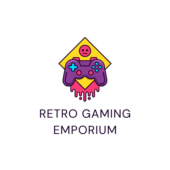In the ever-evolving world of gaming, classic consoles hold a special place in the hearts of enthusiasts and casual players alike. These iconic devices, from the NES to the Sega Genesis, paved the way for the immersive experiences we enjoy today. They weren’t just gaming machines; they were cultural phenomena that shaped a generation’s entertainment landscape.
Classic consoles offer more than nostalgia; they represent a golden era of creativity and innovation in the gaming industry. With their simple graphics and iconic soundtracks, these consoles provided endless hours of fun and laid the groundwork for today’s gaming giants. As retro gaming continues to grow in popularity, revisiting these timeless systems offers a glimpse into the past and a reminder of how far technology has come.
Whether you’re a seasoned gamer or new to the scene, exploring classic consoles is a journey worth taking. They remind us of a time when gaming was simpler yet profoundly impactful.
Classic Consoles

Classic consoles are gaming systems released primarily during the late 1970s to the early 2000s. These devices include iconic models like the Nintendo Entertainment System (NES), Sega Genesis, and Sony PlayStation. They played crucial roles in defining the home gaming experience, significantly shaping the gaming culture of their time.
These consoles feature simpler graphics and gameplay compared to modern systems, with an emphasis on creativity and engaging storytelling. Many of them introduced groundbreaking titles that became legendary in the gaming community. For instance, Super Mario Bros. on the NES and Sonic the Hedgehog on the Sega Genesis remain beloved favorites.
The Evolution Of Classic Consoles
Classic consoles have transformed the gaming industry, evolving from basic systems to sophisticated entertainment hubs. This evolution reflects advancements in technology and shifts in consumer preferences.
The Birth Of Home Gaming
In the late 1970s, home gaming emerged with the introduction of the Magnavox Odyssey and Atari 2600. These early consoles brought arcade-style games into living rooms for the first time. By leveraging cartridge-based systems, they allowed users to switch games easily, creating a new way to experience entertainment at home.
The simplicity of titles like Pong and Space Invaders captured the imagination of a generation. As technology advanced, these systems laid the groundwork for future gaming innovations.
Iconic Consoles Of The 80s And 90s
 The 1980s and 1990s saw the release of groundbreaking systems such as the Nintendo Entertainment System (NES) and Sega Genesis. NES introduced beloved franchises like Super Mario Bros. and The Legend of Zelda and set a new standard for home gaming.
The 1980s and 1990s saw the release of groundbreaking systems such as the Nintendo Entertainment System (NES) and Sega Genesis. NES introduced beloved franchises like Super Mario Bros. and The Legend of Zelda and set a new standard for home gaming.
Sega Genesis, with titles like Sonic the Hedgehog, provided a powerful alternative and showcased advanced graphics and sound. Both consoles sparked intense competition, fueling innovations in gameplay and technology. As processing power grew, these machines supported increasingly complex storylines and lifelike graphics, influencing later gaming system designs.
Notable Classic Console Titles
Classic consoles became legendary thanks to their iconic game libraries. These titles not only contributed to massive sales but also left an indelible mark on gaming culture.
Best-Selling Games
Several games from classic consoles reached impressive sales milestones. Super Mario Bros. for the NES captured imaginations worldwide by selling over 40 million copies. Its straightforward but challenging gameplay set the standard for platformers. Tetris on the Game Boy became synonymous with addictive puzzle gaming, amassing 35 million unit sales.
It exemplified how simple concepts could captivate players for hours. Meanwhile, Sonic the Hedgehog on the Sega Genesis sold over 15 million copies, showcasing speed-driven gameplay and defining Sega’s brand identity.
| Game | Console | Sales (millions) |
| Super Mario Bros. | NES | 40 |
| Tetris | Game Boy | 35 |
| Sonic the Hedgehog | Sega Genesis | 15 |
Cult Classics

Beyond the bestsellers, many titles achieved cult status, resonating deeply with dedicated fanbases despite modest sales. EarthBound for the SNES featured quirky storytelling and humor, gaining a passionate community.
Shenmue on the Dreamcast introduced open-world exploration and real-world simulation, establishing a unique legacy. Castlevania: Symphony of the Night for the PlayStation redefined the genre with its non-linear gameplay, earning admiration among fans even years after its release.
These cult classics, while not commercial giants, influenced game design and nurtured dedicated followings, highlighting the diverse and enduring appeal of classic console games.

